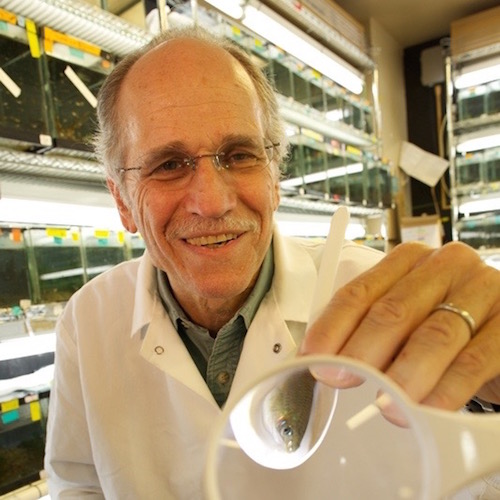 Evolution
Evolution
 Faith & Science
Faith & Science
“Rapid” Evolution Observed in Guppies? As Always, It Depends on What You Mean by Evolution

Reporting in Proceedings of the Royal Society B, researchers have rigorously demonstrated something totally unsurprising — only to turn around and offer it as evidence for something quite different and quite surprising. The technical term for that is bait-and-switch.
A team showed that if you take guppies and move them from an environment rich in predators to one that’s largely predator-free, this can have an effect on a superficial trait like coloration. Who would have thought otherwise? Given (a) characteristics that vary from generation to generation, (b) heritability, and (c) an environment or other factors that favor one over another, it would be startling if selection didn’t result in small-scale change over time, even over rather short periods — microevolution, in other words, at its finest.
From the Abstract (“Selection analysis on the rapid evolution of a secondary sexual trait“):
Here, we present a study of experimental evolution of male colour in Trinidadian guppies where we tracked both evolutionary change and individual-based measures of selection. Guppies were translocated from a predator-rich to a low-predation environment within the same stream system. We used a combination of common garden experiments and monthly sampling of individuals to measure the phenotypic and genetic divergence of male coloration between ancestral and derived fish. Results show rapid evolutionary increases in orange coloration in both populations (1 year or three generations), replicating the results of previous studies. Unlike previous studies, we linked this evolution to an individual-based analysis of selection. By quantifying individual reproductive success and survival, we show, for the first time, that males with more orange and black pigment have higher reproductive success, but males with more black pigment also have higher risk of mortality. The net effect of selection is thus an advantage of orange but not black coloration, as reflected in the evolutionary response. This highlights the importance of considering all components of fitness when understanding the evolution of sexually selected traits in the wild.
Commenting in Science Daily (“Evolution shown in real time“), an author of the study, UC Riverside biologist David Reznick, points out the relevance to the evolution debate as he sees it:
“People think of evolution as historical. They don’t think of it as something that’s happening under our nose. It is a contemporary process. People are skeptical; they don’t believe in evolution because they can’t see it. Here, we see it. We can see if something makes you better able to make babies and live longer,” Reznick said. [Emphasis added.]
But the kind of evolution Dr. Reznick and his colleagues observed is not the same thing — unguided macroevolution, novel biological information fortuitously generating new animals — that is subject to skepticism by those who “don’t believe in evolution because they can’t see it.” Set aside the gratuitous swipe at skeptics. Show me the most devout creationist and I will show you someone perfectly happy to accept every word of David Reznick’s results, and completely untroubled by them.
Don’t Darwinists know this? I understand wanting to draw attention to your work by highlighting how it casts light on a hot debate. But first find out what both sides in the debate say, what they’re arguing about, and then tell us how your work ought to figure into the discussion.
